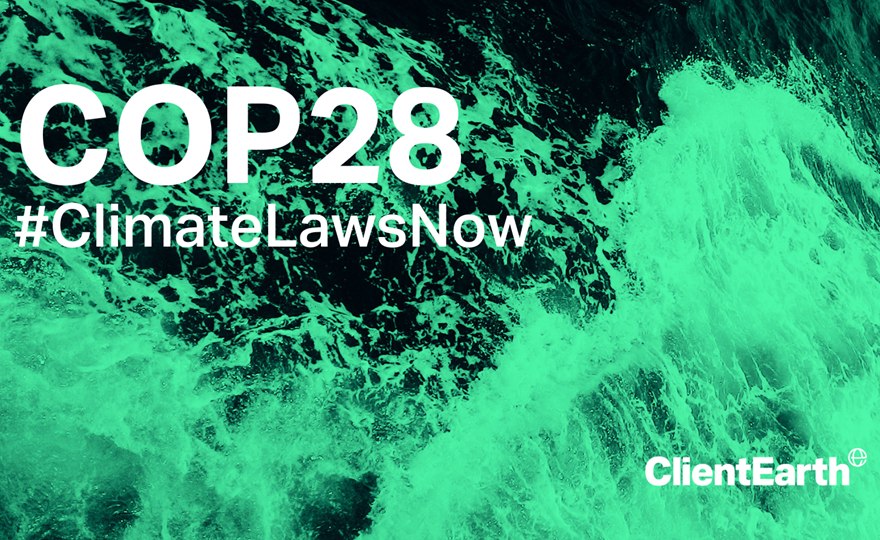ClientEarth Communications
23rd November 2023


Climate change is not a distant threat but an urgent crisis, severely affecting some of the most vulnerable communities worldwide. As the international community gathers for COP28, the focus is not only on reducing emissions but on leveraging the power of international law to support those most affected by climate change.
1. Ambitious plans to protect human and environmental rights
We want to see parties at COP28 make ambitious submissions to international courts, emphasising climate justice and the protection of human and environmental rights. This includes strengthening arguments on climate justice to ensure the highest levels of protection and addressing questions of adaptation and other forms of finance.
You can add your voice and tell world leaders at COP to protect human rights.
Sign our open letter for COP28
2. Inclusive conversations
States must broaden the role of civil society in international proceedings. Specifically, the inclusion of civil society demands, with a focus on youth and Indigenous groups, is crucial. This move ensures diverse voices are heard in vital conversations on climate justice.
3. Loss and damage fund
Wealthy nations made a pledge in 2009, then integrated in the Paris Agreement, for a yearly USD 100 billion by 2020 climate finance to help developing countries tackle climate change. The mobilisation of this financing is critical and its fulfilment by developed countries has been delayed. For the most vulnerable already hit by irreparable effects of climate change, the finalisation of the Loss and Damage Fund established at COP27 must place human rights at its core. They must now step up action on the Fund.
For decades, Small Island States have championed international cooperative efforts when it comes to tackling climate change worldwide. Now, they are at the forefront of the conversations clarifying legal obligations around adapting to climate change. Here’s how:
As COP28 unfolds, the international community has a unique opportunity to shape the future of climate justice through law. By actively engaging in the conversations and ensuring the loss and damage fund along lines of human rights and equity, nations can collectively work towards a more just and sustainable future for people and planet.